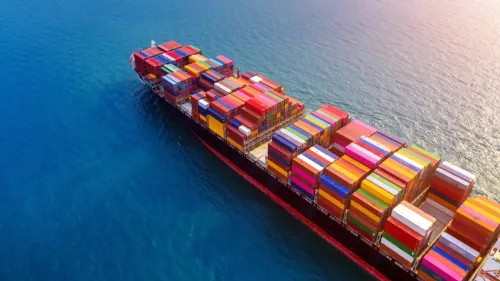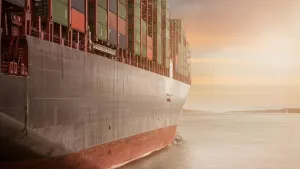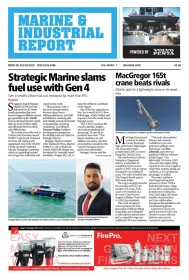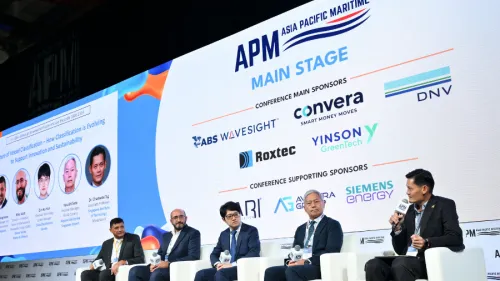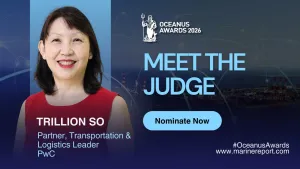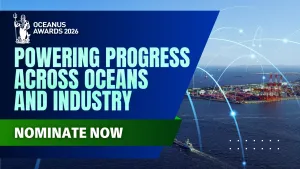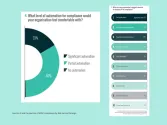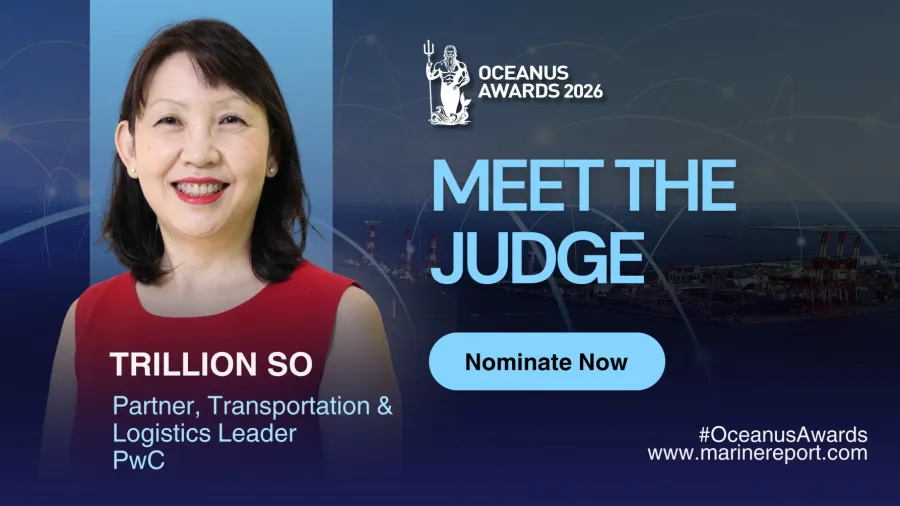
Digital integration and ESG are key for sustainable maritime growth – PwC’s Trillion So
She underscored the need for sustainability to be integrated into business strategy to secure long-term resilience and value creation.
As global trade shifts, sustainability expectations rise and digital transformation accelerates, the marine and industrial sectors are experiencing a pivotal period of change. Companies must strengthen resilience, innovate, and adapt their strategies to stay competitive.
Sharing expert insights is Trillion So, Partner and Transportation & Logistics Leader at PwC, renowned for her deep expertise across the global transport and supply chain landscape. Her extensive experience spans shipping and ports, including liner, tanker, dry bulk, drillship, and ro-ro operations, as well as shipyards, terminals, brokers, agents, and ship management. She also advises across the logistics and postal sectors, as well as public land transport, including rail, taxis, and private-hire vehicles, complemented by exposure to industries such as offshore oil services, real estate, healthcare, retail, and construction.
In addition to audit leadership, So has played key roles in major transactions and strategic projects, including IPOs, mergers and acquisitions, international share placements, GAAP conversions, financial policy reviews, and due diligence.
As a judge at the Oceanus Awards 2026, So offered perspectives into navigating uncertainty, advancing sustainability goals, fostering cross-sector collaboration, and positioning for future growth across these industries.
With your extensive experience, how would you describe the current landscape of the marine, maritime, offshore, and industrial sectors amidst global economic and trade shifts?
There's a lot of uncertainty and paralysis across many companies in relation to when and how to best safeguard their business growth with the US tariffs. Companies that are playing the wait-and-see game run a risk of missing out on critical growth opportunities or being left behind by the competition. Some companies will need to carefully re-examine their market positions and potentially diversify their portfolios to keep their market share. These strategies take time to develop and implement, so they must start now and not wait until profit margins begin to erode.
How can companies effectively align decarbonisation and ESG goals with their commercial performance?
Companies should embed sustainability into their core strategy to support long-term resilience and value creation. A comprehensive understanding of how sustainability impacts the business and its entire value chain is critical to identifying opportunities for innovation, operational efficiency, and risk mitigation. For instance, in sectors such as maritime, some operators are investing in methanol-powered vessels and adopting digital route optimisation technologies—measures that reduce greenhouse gas emissions whilst improving fuel efficiency and lowering operating costs. Companies should also engage both internal and external stakeholders—including investors, customers, regulators, and employees—to ensure ESG targets are credible, relevant, and aligned with broader expectations. Meaningful engagement helps build trust, fosters accountability, and ensures that sustainability goals are not only ambitious but also grounded in the realities of the business and its ecosystem. By integrating decarbonisation and ESG goals into strategic planning and decision-making, companies can position themselves for sustainable growth in an increasingly ESG-conscious market.
In your view, how important is cross-sector collaboration in driving innovation and long-term progress across these interconnected industries?
Cross-sector collaboration is very important and, in fact, essential to fostering innovation and driving sustainable, long-term progress. Industries are highly interconnected and face complex challenges such as climate change, digital transformation, and global supply chain resilience that require joint efforts. A good example is SGTraDex, a data exchange that brings together marine and non-marine companies to address use cases such as bunker optimisation. Collaborative industry challenges like PIER71's Smart Port Challenge also bring together port authorities, shipping lines, and technology startups to develop innovative solutions that cut across sectors, illustrating how innovation is accelerated when diverse expertise is pooled. These partnerships create new opportunities to solve industry-wide problems that no single company could tackle alone.
How can companies refine their strategies to remain efficient and sustainable in an increasingly complex global environment?
Companies will need to assess their exposure to the USA and decide if it makes sense to diversify their manufacturing footprints or build up critical stock levels closer to their key markets. This might require M&A plans to enter new markets or investment in critical assets that allow them a greater opportunity to succeed. Maritime companies should work towards a closer integration of digital technologies into their core operations with environmental and social governance priorities. With an ever-increasingly complex global environment, companies should also focus on talent renewal and capability building to reskill and upskill their current employees to bring their companies into the future. A good example is the Maritime Digital Roadmap by the Singapore Shipping Association that aims to provide maritime companies with the ability to develop their own digital roadmap.
Looking ahead, what emerging trends or transformations do you believe will define the future of the marine, maritime, offshore, and industrial sectors?
I believe there will continue to be a diversification of businesses to become less reliant on the USA and a bigger push into the Southeast Asian/Indian markets. Japanese and Chinese firms are on the hunt for strategic acquisitions to grow their footprints and diversify their portfolios. Some groups that might have operated previously on asset-light models will look to make strategic investments in assets such as warehouses, trucks, and ships. Companies need to understand their DNA when exploring "end-to-end" solutions. They shouldn't stray too far away from their core businesses and not lose focus on what their organisations can deliver. I also believe there will be a need for greater collaboration amongst companies that have always been competitors and join forces to compete against new Chinese entries looking to buy market share at zero to negative margins. Other key trends include digitalisation of cargo and vessel tracking, AI, scaling up of smart port infrastructure, inclusion of robotics in operations and a focused transition towards alternative fuels and robust data ecosystems. The impact of AI, especially, coupled with data from IOT and ships and applied equally in corporate functions, is not to be understated in the maritime industry. Certain companies take to AI as a quick way to leapfrog competitors and offer better value to their customers, and I believe that this trend is going to continue.
As a judge at the Oceanus Awards 2026, what key qualities and achievements will you be looking for in companies that exemplify excellence in these industries?
Companies that have clear executable strategies that can show long-term sustainable growth and unique solutions they have developed for their customers. I also like to see practical use cases on how these companies are implementing AI to gain competitive advantages over their competition and scale their businesses. Last but not least, I like to see how companies create the right culture so that their people can execute the strategies, including engaging, growing and developing their talent through reskilling and upskilling their current employees.
